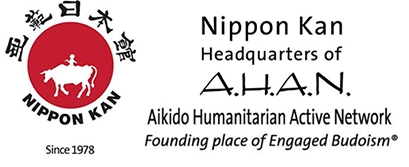By Arturo Alvarez Kawai
December 2008
Right in the middle of the Colombian province of “Valle del Cauca”, west of the Cauca river and east of the mountainous chain of “Los Andes”, lies the city of Cali. Once a common subject of negative headlines worldwide, Cali has fortunately become a more peaceful city, better known for its commercial activities and agricultural industry. And, of course, for its love of salsa and nightlong partying. Long gone are the days when shootings would burst at any time between drug dealers and police officers in the middle of the street, or the guerrilla would kidnap anyone for ransom at open daylight.
That is the first thing I discovered from Cali when I arrived there last October, invited by Homma Kancho to be his otomo during the latest tour of the Matsukawa Kyogaku Daiko in that city.
The Denver audience, and Nippon Kan members in particular, should be very familiar with the Matsukawa Kyogaku Daiko, a “taiko” group who, I’ve been told, has visited the Mile High City twice already.
As Homma Kancho’s otomo I had a special treat: Not only did I get to watch the spectacular performance of the group in Cali, but also got to share some quality time with its members. And that provided a whole different perspective, maybe even a more fulfilling one.
Because during each and every show I would find myself staring in awe at the power, harmony, rhythm and perfect coordination of the whole group. Each presentation seemed almost flawless, the dreamt outcome of any professional musician. But then the drummers would step down from the stage and return to the ordinary world. Together we would share a van to the hotel, where they would enjoy a simple meal, check e-mails or just have some sleep. No bodyguards, no fancy five stars hotels, no flamboyant requests like Evian water or Dom Perignon and strawberries in their rooms. It was surrealistic to discover how these performers who gave so much on the stage could be so happy with the simplest things: The applause and the cheers of their audience. They asked for nothing more.
Believe it or not, all members of the Kyogaku Daiko are ordinary people like you and me, with regular jobs and a very simple life back in their small home town of Matsukawa. None of them, except maybe for the school’s director, considers themselves a professional drummer. They just train hard three times a week for two hours. Every week. All year long.
How strange then that unprofessional musicians would come to remind me what true art is really about: Just discipline and love for what one does. Everything else is simply accessory.

